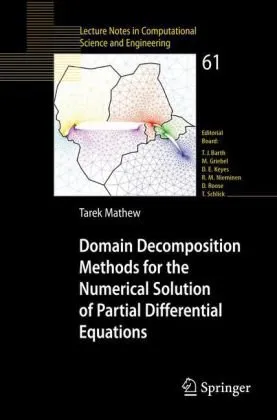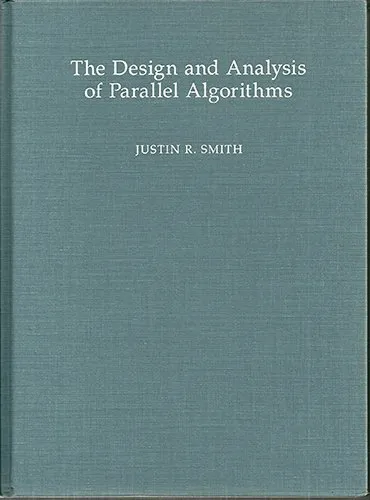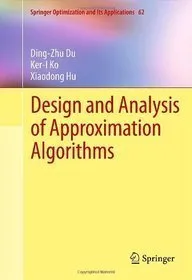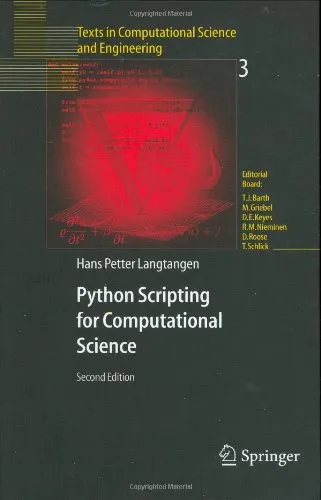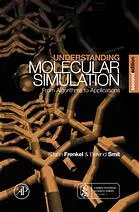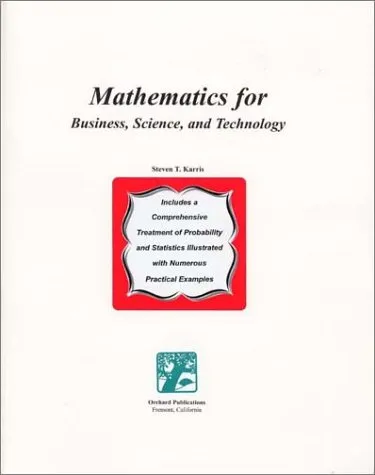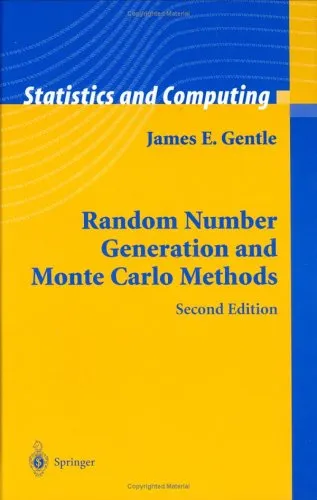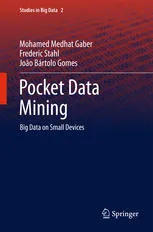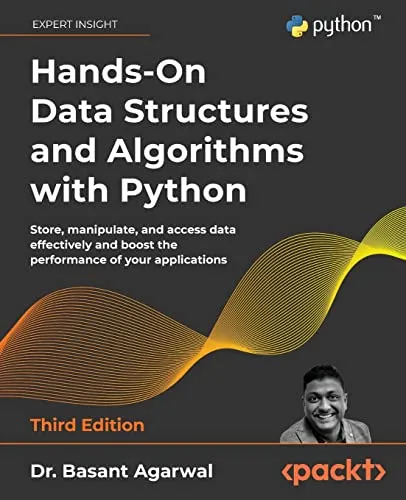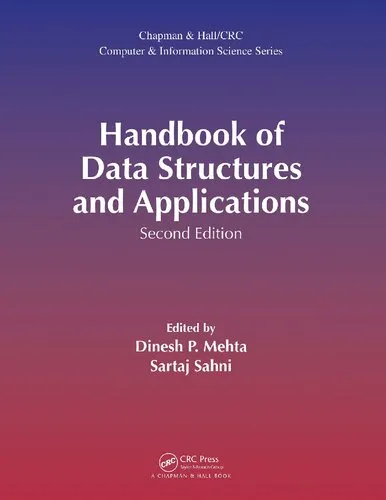Domain Decomposition Methods for the Numerical Solution of Partial Differential Equations
4.6
Reviews from our users

You Can Ask your questions from this book's AI after Login
Each download or ask from book AI costs 2 points. To earn more free points, please visit the Points Guide Page and complete some valuable actions.Related Refrences:
Introduction
Welcome to 'Domain Decomposition Methods for the Numerical Solution of Partial Differential Equations,' a comprehensive guide that explores the cutting-edge methodologies and applications in solving partial differential equations (PDEs) through domain decomposition techniques. This book is a deep dive into the world of numerical solutions, providing insights and tools that are essential for anyone involved in computational mathematics, engineering, and scientific computing.
Detailed Summary
The field of partial differential equations is vast and complex, forming the backbone of numerous scientific and engineering problems. This book focuses on domain decomposition methods, which play a crucial role in breaking down large-scale problems into smaller, more manageable sub-problems that can be solved concurrently. The text is structured to progressively introduce the fundamental concepts, theories, and algorithms that underpin domain decomposition.
We begin by exploring the theoretical foundations of PDEs and their historical challenges, setting the stage for the introduction of domain decomposition as a transformative approach. Each chapter builds upon the last, introducing increasingly sophisticated methods and real-world applications. Readers will find detailed discussions on iterative and non-iterative methods, overlapping and non-overlapping decompositions, as well as hybrid methods that combine the strengths of various approaches.
The book is enriched with numerous examples and case studies, illustrating practical implementations and the advantages of using decomposition methods in a variety of fields such as fluid dynamics, electromagnetism, and structural analysis. Additionally, we discuss the integration of these methods with modern computational technologies and parallel computing architectures to enhance efficiency and scalability.
Key Takeaways
- Understanding the intrinsic challenges of solving PDEs and how domain decomposition can provide effective solutions.
- Comprehensive insight into the different types of decomposition techniques and their use cases.
- Advanced strategies for implementing these methods in parallel computing environments to maximize computational power.
- Practical applications and case studies that demonstrate the real-world effectiveness of domain decomposition.
- Theoretical and practical considerations in selecting suitable methods for specific problems.
Famous Quotes
“Domain decomposition not only simplifies the problem-solving process but also unearths the latent potential of computational mathematics.”
“By slicing through complexity with precision, we enable clear pathways to solutions that were once obscured by scale and intricacy.”
Why This Book Matters
In an ever-evolving technological landscape, the ability to efficiently solve complex mathematical models has never been more critical. Domain decomposition methods represent a pinnacle in the numerical solution of PDEs, offering unprecedented avenues for refinement and innovation across numerous disciplines. This book stands as a cornerstone reference for researchers, practitioners, and students alike who are eager to harness these cutting-edge techniques.
As the demand for faster and more reliable computational solutions grows, understanding and applying domain decomposition methods can lead to significant advancements in both academic research and applied sciences. This work not only serves as an educational tool but also as an inspiring call to continue exploring the vast horizons of numerical mathematics.
Free Direct Download
You Can Download this book after Login
Accessing books through legal platforms and public libraries not only supports the rights of authors and publishers but also contributes to the sustainability of reading culture. Before downloading, please take a moment to consider these options.
Find this book on other platforms:
WorldCat helps you find books in libraries worldwide.
See ratings, reviews, and discussions on Goodreads.
Find and buy rare or used books on AbeBooks.
1283
بازدید4.6
امتیاز0
نظر98%
رضایتReviews:
4.6
Based on 0 users review
Questions & Answers
Ask questions about this book or help others by answering
No questions yet. Be the first to ask!
